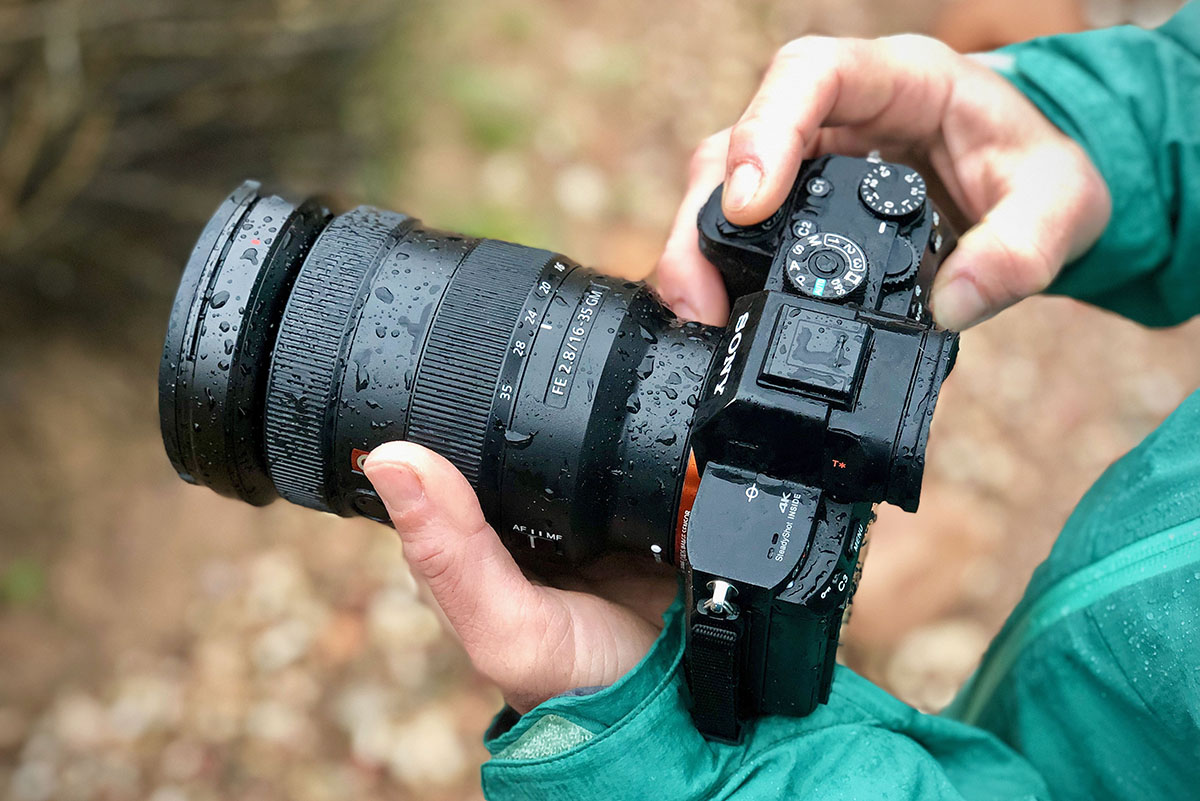What is the difference between a DSLR and a Mirrorless Camera?
Professional photographers often find themselves deliberating over the choice between a DSLR and a mirrorless camera. The debate is not just a matter of personal preference but is rooted in technical differences that can significantly impact one's photography. Let's delve deep into the nuances of both to understand these differences.

Introduction
The world of professional photography is vast and varied, with tools and technology continually evolving. Among these tools, cameras hold a place of paramount importance. Over the years, DSLRs (Digital Single-Lens Reflex) have been the go-to choice for many professionals. However, the advent of mirrorless cameras has introduced a worthy contender to the throne. But what sets them apart? And how do you choose the right one for your needs?

Explaining the Basics
Understanding DSLRs
DSLR cameras have been around for decades and have a legacy of producing high-quality images. They use a mirror mechanism that reflects light from the lens up into an optical viewfinder. This allows photographers to see exactly what they are going to capture. When the shutter button is pressed, the mirror flips up, and the image is captured by the camera's sensor.
Understanding Mirrorless Cameras
On the other hand, mirrorless cameras omit the mirror mechanism altogether. Instead, light passes directly from the lens to the image sensor, and the image is displayed on an electronic viewfinder (EVF) or the LCD screen. This design change results in a more compact and lighter camera.

Key Differences to Consider
Size and Weight
One of the most noticeable differences is the size and weight. Mirrorless cameras, lacking a mirror mechanism, tend to be smaller and lighter. This can be a significant advantage for photographers who are always on the go or need to carry their gear for extended periods.
Viewfinder vs. LCD Screen
DSLRs use an optical viewfinder, giving a direct optical view through the lens. This can be advantageous in bright light conditions and provides a real-time, lag-free view. In contrast, mirrorless cameras rely on an electronic viewfinder or LCD screen, which can sometimes lag but also offer real-time exposure settings display.
Autofocus Systems
Autofocus in DSLRs is often faster and more reliable, especially in low light conditions. This is due to phase-detection autofocus systems. However, modern mirrorless cameras have made significant strides in this area, with some models offering hybrid autofocus systems that combine phase-detection and contrast-detection, making them highly competitive.

Advantages and Disadvantages
DSLR Advantages
- Robust build and durability
- Optical viewfinder with zero lag
- Longer battery life
Mirrorless Advantages
- Compact and lightweight design
- Electronic viewfinder with live exposure preview
- Silent shooting mode
DSLR Disadvantages
- Larger and heavier
- Complex mirror mechanism adds to bulk
- Limited video capabilities in some models
Mirrorless Disadvantages
- Shorter battery life
- Electronic viewfinder can lag
- Fewer lens options (though this is rapidly changing)
Choosing the Right Camera for Your Needs
The choice between a DSLR and a mirrorless camera ultimately boils down to your specific needs and preferences. If you value a robust build, longer battery life, and an optical viewfinder, a DSLR might be the way to go. Conversely, if you prefer a more compact, lightweight design with advanced digital features, a mirrorless camera could be more suitable.
- For travel photographers, the lightweight nature of mirrorless cameras can be a significant advantage.
- For sports or wildlife photographers, the fast and reliable autofocus of DSLRs might be more beneficial.
Both types of cameras have their strengths and weaknesses. It's crucial to weigh these aspects against your requirements and shooting style.
FAQs
Are mirrorless cameras better for video?
Yes, many mirrorless cameras offer superior video capabilities compared to DSLRs. They often support 4K recording, have better autofocus in video mode, and are more compact, making them ideal for videographers.
Can I use DSLR lenses on a mirrorless camera?
Yes, with the right adapter, you can use DSLR lenses on a mirrorless camera. However, it's essential to check compatibility and performance, as not all lenses may work seamlessly with every adapter or camera.
Which camera is better for beginners?
Both DSLRs and mirrorless cameras can be suitable for beginners. Mirrorless cameras may have a steeper learning curve due to their advanced features, but they also offer real-time exposure previews, which can be helpful for novices.
For more photography tips, check out this guide on mirrorless cameras.
For additional insights on camera maintenance, read our guides on cleaning a mirrorless camera sensor and understanding mirrorless digital cameras.
As an Amazon Associate, I earn from qualifying purchases.

